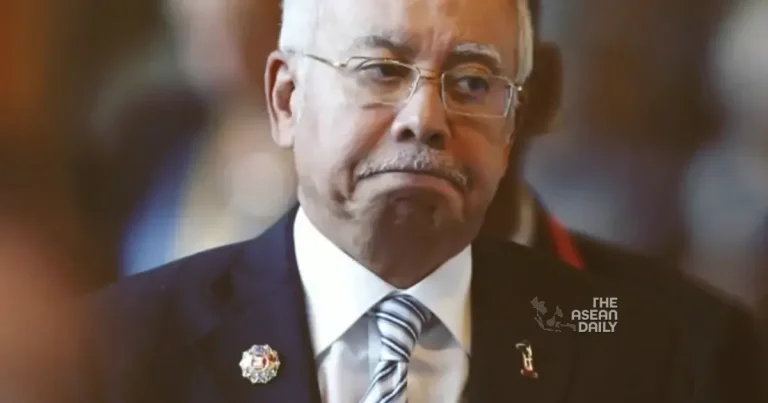11-1-2024 (KUALA LUMPUR) The possibility of a royal pardon for Malaysia’s former Prime Minister, Najib Razak, who is currently serving a 12-year jail sentence for corruption related to the 1MDB scandal, has sparked intense speculation and concerns about its potential impact on the country’s political landscape. If granted, this pardon could have far-reaching consequences for key political figures in Malaysia, including Prime Minister Anwar Ibrahim and opposition leader Muhyiddin Yassin, potentially reshaping the power dynamics and alliances within the nation.
A royal pardon would carry significant legal weight, effectively erasing Najib’s conviction and allowing him to resume his political career unhindered. This prospect has sent shockwaves through the political establishment, particularly among the four most influential figures in Malaysia: Prime Minister Anwar Ibrahim, Deputy Prime Minister Ahmad Zahid Hamidi, opposition leader Muhyiddin Yassin, and Parti Islam Se-Malaysia (PAS) leader Abdul Hadi Awang.
For Anwar Ibrahim, who himself received a royal pardon in 2018, the potential granting of a pardon to Najib presents a delicate situation. As a member of the Pardons Board, Anwar risks being perceived as complicit in securing Najib’s release, despite having limited influence over the decision. This could tarnish Anwar’s reputation and cast doubt on his commitment to combating corruption, particularly in light of the dropped charges against Deputy Prime Minister Ahmad Zahid.
Najib’s release could have profound implications for UMNO, the leading political party in Malaysia. The former prime minister still commands significant support, particularly in his home state of Pahang, as evidenced by the election of his sons to key positions within the party during his incarceration. Any moves made by Najib within UMNO would reverberate throughout the party, which is already viewed as a liability for the ruling unity government following its underwhelming performance in the 2023 state elections.
UMNO’s current president, Ahmad Zahid, stands to lose the most if Najib reenters the political arena. With the next internal polls for UMNO presidency coinciding with the upcoming general election, Najib’s potential campaign for leadership could create uncertainty within the party and weaken Zahid’s position within the unity government. Alternatively, Najib may choose to bide his time and assess UMNO’s performance in the next general election before making any decisive moves, potentially influencing the formation of a new coalition government.
For opposition leader Muhyiddin Yassin, the prospect of Najib’s return could present an opportunity to exploit divisions within UMNO and potentially bring down the unity government. A figure who can splinter UMNO’s support base has the potential to destabilize the ruling coalition. However, past animosity between Najib and Muhyiddin adds a layer of complexity to this scenario, making it uncertain how their relationship would evolve in the event of Najib’s release.
The potential royal pardon for Najib Razak has thrust Malaysian politics into a state of uncertainty and speculation. If granted, the pardon could have wide-ranging implications for the country’s political landscape, affecting key figures and potentially reshaping alliances within the ruling coalition. As Malaysia navigates this delicate situation, the political future of Najib and the power dynamics among Anwar Ibrahim, Muhyiddin Yassin, and Ahmad Zahid will undoubtedly be closely watched by observers both within and outside the country.




